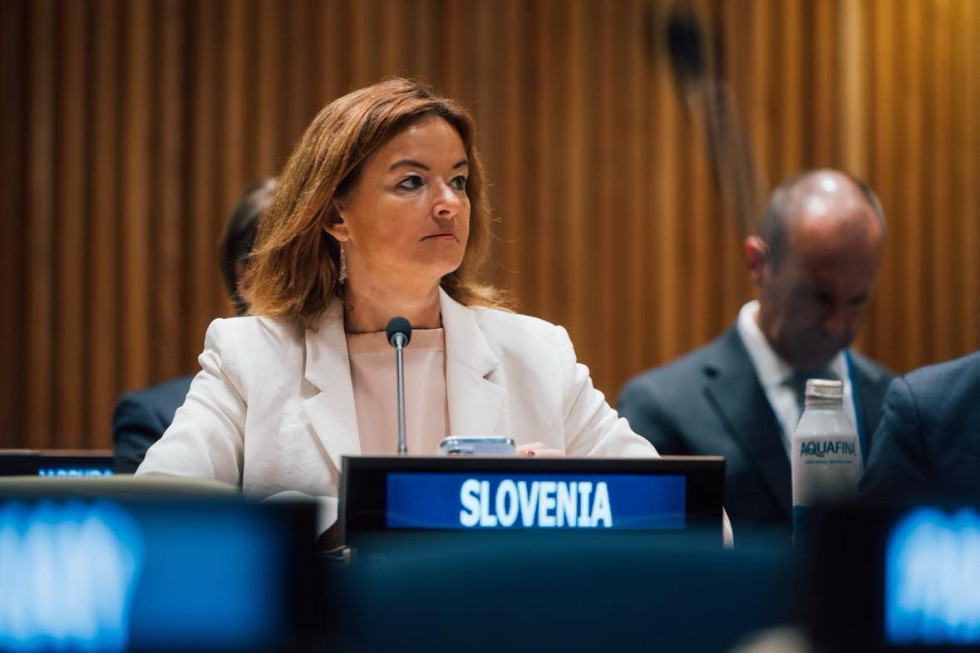Minister Fajon: Slovenia advocates for robust support of UNRWA's work

Minister Tanja Fajon at the Pledging Conference | Author Ministrstvo za zunanje in evropske zadeve
On the sidelines of the Conference, Minister Fajon presented the Shared Commitments on UNRWA, which were initiated by Slovenia, Jordan and Kuwait. "Today, at UN Headquarters, we can be very proud of Slovenia, which, together with Jordan and Kuwait, has so far brought together 118 Member States in support of UNRWA. Slovenia has made a significant impact; it is gratifying to hear about our country's contributions to UNRWA, an irreplaceable organisation in its efforts to assist civilians, children and people in need and despair amidst the war in Gaza. I am proud of our diplomatic team and the work we have accomplished. This has earned us great recognition from the Agency, with all the countries today renewing their substantial financial support. Slovenia will continue to do its utmost to help the civilian population in Gaza," said Minister Fajon.
The statement, endorsed by more than 118 Member States, including all members of the Security Council, highlights the challenges facing UNRWA, both politically and financially, as well as in the implementation of its activities on the ground.
"UNRWA is more than an agency that helps Palestinian refugees to survive. It is an organisation that has created a better future for many Palestinians. UNRWA has been a lifeline for generations of Palestinian refugees in Gaza, the West Bank, Jordan, Lebanon and Syria. I am proud that Slovenia has today pledged an additional financial contribution of one million euros to UNRWA, bringing the total amount of aid to thirty times more than our average contribution," said Minister Fajon in her speech at the Pledging Conference, which was also attended by UN Secretary-General Antonio Guterres and UNRWA Commissioner-General Philippe Lazzarini.
On the sidelines of the event in New York, Minister Fajon met with UNRWA Commissioner-General Philippe Lazzarini to discuss the current situation in Gaza and the challenges facing UNRWA. Fajon pledged continued support for UNRWA, which is the cornerstone of the humanitarian response and an essential part of daily life in Gaza.

